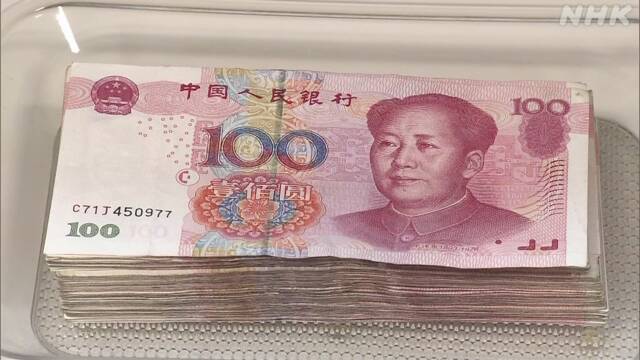In the wake of Russia's invasion of Ukraine, the West and Japan continue to impose economic sanctions on certain Russian financial institutions from international payment networks.
Under these circumstances, the use of China's payment network is expanding, so experts believe that in addition to Russia, countries that are wary of Western sanctions are using it.
To hurt the Russian economy, the West and Japan have banned certain Russian financial institutions from the international payment network called SWIFT, which is used by financial institutions in about 200 countries and regions.
Under these circumstances, the use of China's own payment network "CIPS", which aims to expand toward the internationalization of the renminbi, is increasing.
According to private think tank Daiwa Institute of Research, the average number of payments made using CIPS per day reached 21,000 last month, 1.5 times the number before the invasion of Ukraine.
In addition, more than 100 financial institutions have newly joined the network in the year to December last year, and experts believe that in addition to Russia, countries that are wary of Western sanctions are using it.
Yosuke Tsuyuguchi, a professor at Teikyo University who is familiar with CIPS, said, ``Russia has started selling oil to China, which it used to sell to Europe. This is the background to the increase in settlements of "CIPS".The dollar's dominance will not collapse easily, but if transactions in "CIPS" expand in the future, the effect of financial sanctions using SWIFT will increase. It may go down,” he said.
Some central banks move to buy gold as foreign exchange reserves
Economic sanctions against Russia include a freeze on dollar assets as well as a ban from international payment networks.
In response, some central banks are increasingly buying gold as foreign exchange reserves.
According to the World Gold Council, a research organization headquartered in the United Kingdom, the net amount of gold purchased by central banks in each country after deducting the amount sold was 1,135 tons last year, 2.5 times more than the previous year. increased significantly, reaching a record high.
According to Rakuten Securities Economic Research Institute, which analyzes the metal market, net purchases by country are 147 tons for Turkey, 62 tons for China, 44 tons for Egypt, 35 tons for Qatar, Iraq, Uzbekistan, and India. and 33 tons each.
Regarding this, experts say, ``The countries that are increasing their purchases of gold are conspicuously those with worsening relations with Western countries or with certain transactions with Russia. , Is there an aim to increase flexible money?”

